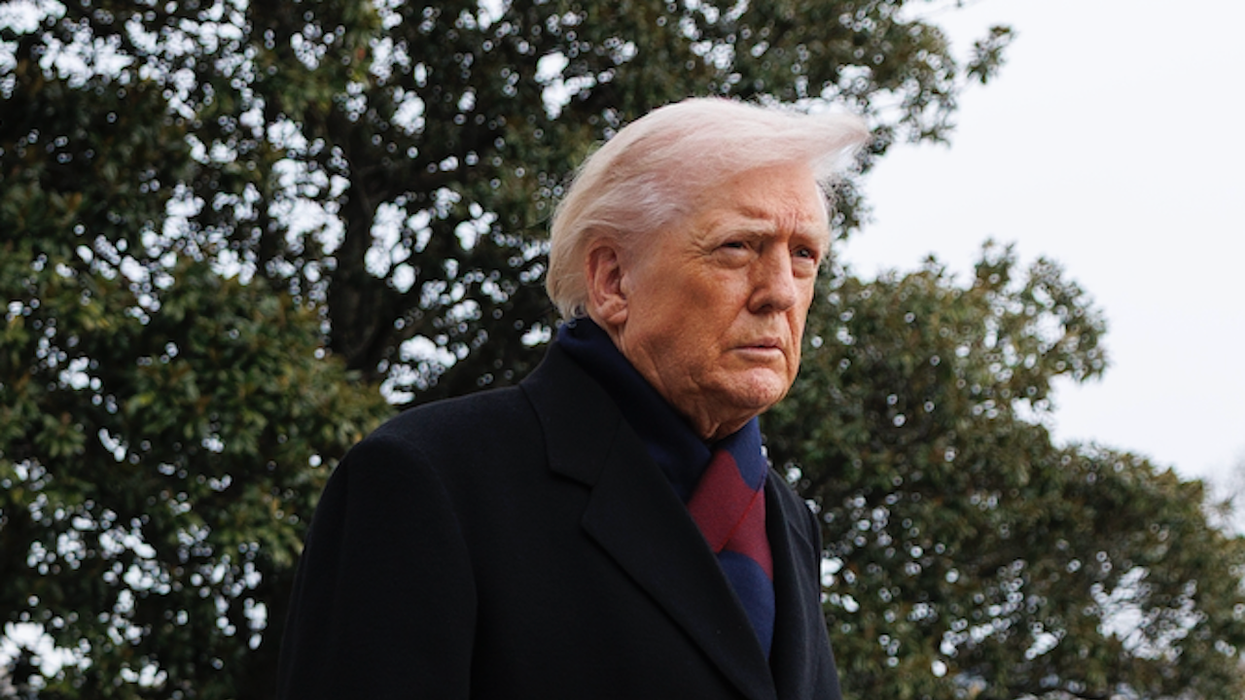
© 2025 Blaze Media LLC. All rights reserved.
National Review Online: "The U.S. has abandoned the moderates and liberals of the Arab world, a policy they relentlessly furthered yesterday"
 (AP File Photo)
(AP File Photo)
Roughly a week after Egypt's Islamist President Mohammed Morsi granted himself unprecedented power, the U.S. State Department is saying the man is a "far cry from an autocrat."
Nearly two years ago the Obama administration supported a revolution that led to the overthrow of U.S. ally and longtime Egyptian leader Hosni Mubarak, ostensibly in favor of a democratic future. And they appear to be standing by the narrative, though an Islamist has seized absolute authority (he claims it is temporary, however).
Amid hundreds of thousands protesting in the streets of Cairo, White House Press Secretary Jay Carney said Tuesday: "We believe firmly that this needs to be resolved internally as part of a transition to democracy."
The State Department took it a step further, practically arguing that there is nothing to "resolve."
"When confronted with concerns about the decree that he issued, President Morsi entered into discussions with the judiciary, with other stakeholders in Egypt," State Department spokeswoman Victoria Nuland remarked, according to the Associated Press. "That's a far cry from an autocrat just saying, 'My way or the highway.'"
In fact, the judiciary was outraged by Morsi's usurpation of power, speaking out against him internationally and suspending work Wednesday to allow people to protest.
Many speculate Egypt's role in the recently-brokered cease-fire between Israel and Gaza may have something to do with the government's lenient attitude.
When a reporter asked Nuland whether she was concerned that we may have "created" another dictator, she reportedly responded:
I think we’ve been absolutely clear that the quality and strength of our relationship with Egypt going forward is rooted in our expectation that Egyptian leaders will take forward the goals of the revolution, the goals of the Egyptian people, to have a democratic, open country that respects the rights of all of its citizens, where there are checks and balances. We haven’t made any secret of that in our conversations with the Egyptians.We very much appreciate, and we were clear about this too, the role that President Morsi and the Government of Egypt played in brokering the ceasefire with Gaza. As the Secretary said when she was in Cairo, this is a role that Egypt has historically played. We’re pleased to see it continuing under the Morsi Administration. That’s important for the region. But other aspects of the transition that the Egyptian people are expecting also have to go forward.
National Review's Patrick Brennan wrote in conclusion:
Elliott Abrams lamented yesterday in an NRO piece the fact that the U.S. has abandoned the moderates and liberals of the Arab world, a policy they relentlessly furthered yesterday. He makes the case that this is neither in line with our values nor our interests.I won’t comment on whether the current U.S. policy is actually sensible — they have their reasons — but it remains noteworthy, even surprising, that Barack Obama is so eager to hitch his camel train to Egypt’s new autocrat. The State Department’s choice of diplomatic rhetoric is per se meaningful, and noted by Egyptian diplomats and diplomats from other Western nations (who have much more strongly condemned Morsi’s actions), but most important, it signals what’s being said and done behind the scenes.
(H/T: WeaselZippers)
--
Related:
Want to leave a tip?
We answer to you. Help keep our content free of advertisers and big tech censorship by leaving a tip today.
Want to join the conversation?
Already a subscriber?
more stories
Sign up for the Blaze newsletter
By signing up, you agree to our Privacy Policy and Terms of Use, and agree to receive content that may sometimes include advertisements. You may opt out at any time.
Related Content
© 2025 Blaze Media LLC. All rights reserved.
Get the stories that matter most delivered directly to your inbox.
By signing up, you agree to our Privacy Policy and Terms of Use, and agree to receive content that may sometimes include advertisements. You may opt out at any time.






